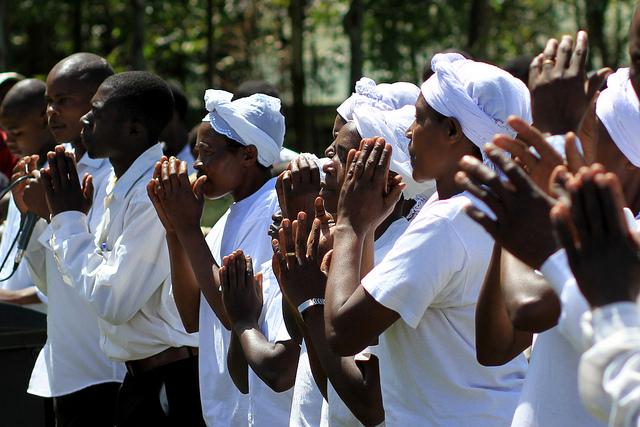In Lagos, a middle-class family pours their savings into their church, believing that generous donations will bring divine financial rewards. Meanwhile, a young entrepreneur in Abuja attends lavish church services where pastors preach that wealth is a sign of God’s favor. These are not isolated instances but part of the broader rise of the prosperity gospel in Nigeria, where promises of spiritual and material blessings often mask financial exploitation.
Nigerian pastors promoting the prosperity gospel often promise that financial contributions to the church will lead to personal wealth and success. This message reverberates deeply in a country where economic hardship and inequality are widespread. Many followers, desperate for a breakthrough, are encouraged to give beyond their means, sometimes selling valuable possessions or taking loans to fulfill the church’s financial demands.

These pastors frequently live in opulence, driving luxury cars, residing in mansions, and wearing designer clothes, showcasing their wealth as evidence of divine favor. The stark contrast between the lavish lifestyles of church leaders and the financial struggles of their congregants raises significant ethical concerns.
Church services are often theatrical, with pastors employing persuasive tactics and emotional appeals to encourage donations. Congregants are promised that their generosity will be rewarded with miracles, health, and prosperity. This exploitation taps into the hopes and fears of vulnerable individuals, turning faith into a transactional relationship where financial giving is equated with spiritual merit.
Moreover, the lack of regulatory oversight allows these practices to flourish unchecked. Churches in Nigeria are generally tax-exempt, and the finances of these religious institutions are rarely scrutinized. This environment creates opportunities for pastors to amass personal wealth at the expense of their followers.

The financial exploitation inherent in the prosperity gospel not only drains individuals’ resources but also fosters a culture of dependency and false hope. It diverts attention from systemic issues such as unemployment, inadequate healthcare, and poor education, which require collective action and sustainable solutions. As the prosperity gospel continues to spread, it becomes increasingly crucial to address and challenge the ethical implications of these practices in Nigerian churches.
To combat financial exploitation in the prosperity gospel, congregants can adopt several strategies. Financial literacy education is crucial, as shown by a Lagos-based NGO that conducted seminars on budgeting and investing, empowering participants to recognize and avoid exploitative practices. Encouraging critical thinking is also vital; a church in Abuja implemented transparent financial policies, publishing detailed accounts of donations to build trust and accountability.
Establishing alternative support systems, like a cooperative society in Enugu that provides low-interest loans, reduces reliance on exploitative church demands. Engaging in interfaith dialogue and advocacy can promote ethical practices; an interfaith council in Kaduna actively works towards policies that protect congregants. Sharing personal stories can also be influential; former church members who overcame financial exploitation can inspire others by showing the benefits of financial education and critical thinking.
These strategies help balance spiritual beliefs with practical wisdom, ensuring faith uplifts rather than exploits followers.
The rise of the prosperity gospel in Nigeria presents a stark challenge, as financial exploitation threatens to undermine the very faith it claims to uphold. However, through financial literacy, critical thinking, community support, interfaith advocacy, and the power of personal stories, congregants can reclaim their spiritual and financial well-being.
By fostering a culture of transparency and accountability, Nigerian churches can become true beacons of hope, offering genuine support and inspiration. It is through these collective efforts that faith can truly flourish, free from the shadows of exploitation.




